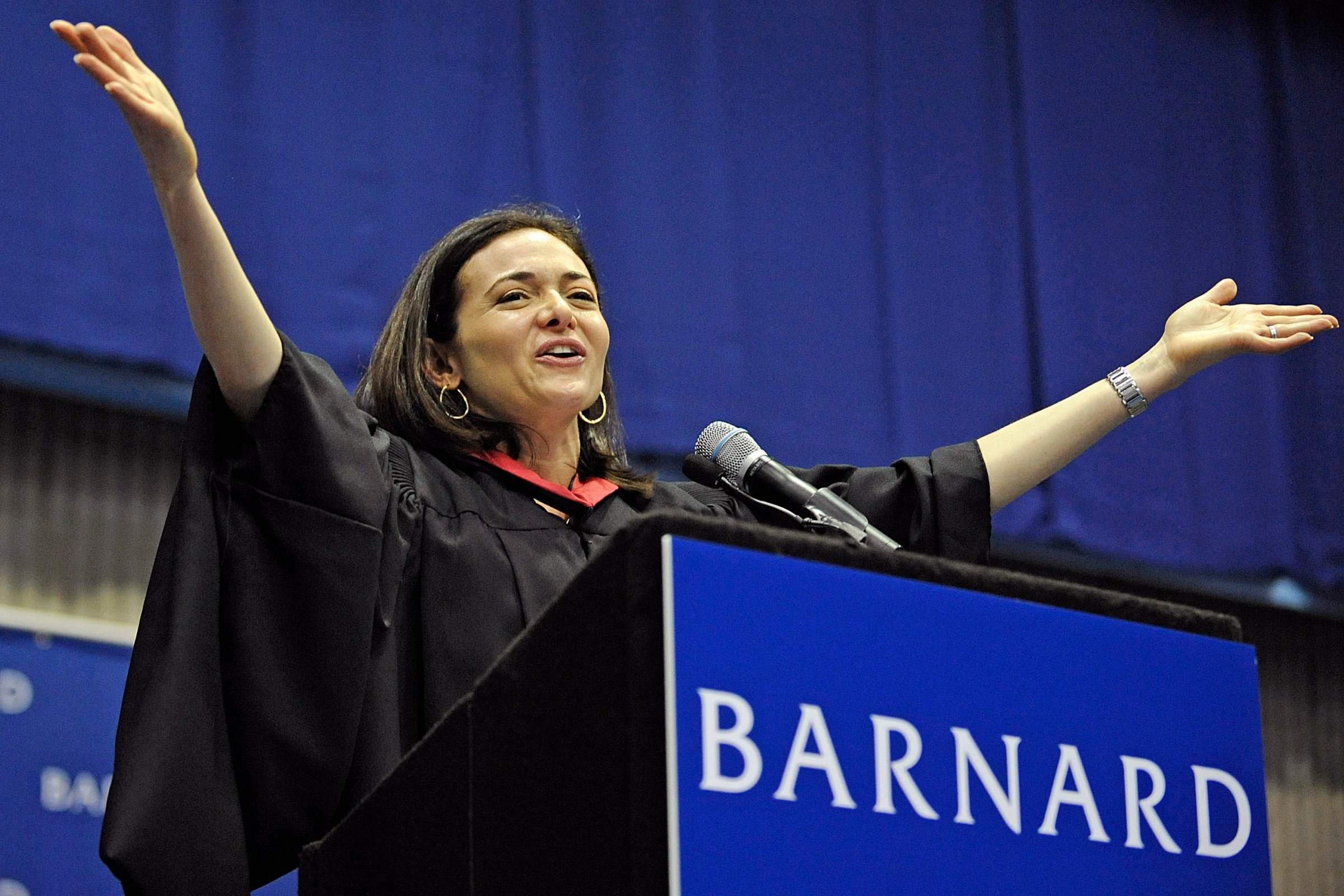
On rare occasions, a commencement speaker can jolt graduates to attention with a personal, even uncomfortable truth from their working lives. Here are seven speakers who departed from the usual bromides about “believing in yourself,” and mined their own lives for failure, doubts and blind spots that marked their ascent to the top of their fields.
Jimmy Iovine, University of Southern California, 2013
Music producer Jimmy Iovine observed that the successes he had achieved as a music producer didn’t amount to anything when he made the switch to selling Beats headphones. “So who believed that Dr. Dre and I could sell hardware,” he wondered aloud. “No one,” he answered in a speech that underscored the transient nature of success. “I learned even at 50, I had to be a beginner again.”
“Please remember this: Your diploma does not represent the end of your education, but the beginning of your continuing education,” he added.
Sheryl Sandberg, Barnard College, 2011
Two years before Sheryl Sandberg published Lean In, the Facebook COO was already sewing the seeds of the movement in an address to Barnard’s graduating class.
“Ask a woman why she did well on something, and she’ll say, ‘I got lucky. All of these great people helped me. I worked really hard.’ Ask a man and he’ll say or think, ‘What a dumb question. I’m awesome.’ So women need to take a page from men and own their own success.”
Jeff Bezos, Princeton University, 2010
Amazon CEO Jeff Bezos related a hard bit of advice from his grandfather: “Jeff, one day you’ll understand that it’s harder to be kind than clever.” Bezos warned that the gift of creativity was a double-edged sword that could lead to complacency and worse, a know-it-all attitude, a lesson that he candidly admits he learned the hard way.
“Cleverness is a gift, kindness is a choice. Gifts are easy — they’re given after all. Choices can be hard. You can seduce yourself with your gifts if you’re not careful, and if you do, it’ll probably be to the detriment of your choices.”
Carl Icahn, Drexel University, 2008
Corporate raider Carl Icahn cut through the uplifting sentiments of commencement addresses with a stern assessment of the nation’s business elite, holding up the average American CEO as the precise opposite of a role model.
“With exceptions, we have terrible management in this country,” he said. “The system is dysfunctional. I can tell you how bad our boards are, with exceptions of course. I sit on a lot of boards. I don’t have to watch Saturday Night Live anymore; I just go to the board meetings.”
Bill Gates, Harvard University, 2007
Bill Gates highlighted a blind spot in his education that persisted for decades. “I knew nothing about the millions of people living in unspeakable poverty and disease in developing countries,” he told Harvard’s graduates, recounting how he was stunned when he first encountered the death tolls from curable diseases that had ravaged the world’s poorest communities.
“You have awareness of global inequity, which we did not have. And with that awareness, you likely also have an informed conscience that will torment you if you abandon these people whose lives you could change with very little effort.”
Steve Jobs, Stanford University, 2005
Steve Jobs drew a remarkable connection between a calligraphy course that would shape the future of Apple.
“If I had never dropped out, I would have never dropped in on this calligraphy class,” he said, “and personal computers might not have the wonderful typography that they do,”
“So you have to trust that the dots will somehow connect in your future. You have to trust in something — your gut, destiny, life, karma, whatever. This approach has never let me down, and it has made all the difference in my life.”
More Must-Reads from TIME
- Breaking Down the 2024 Election Calendar
- How Nayib Bukele’s ‘Iron Fist’ Has Transformed El Salvador
- What if Ultra-Processed Foods Aren’t as Bad as You Think?
- How Ukraine Beat Russia in the Battle of the Black Sea
- Long COVID Looks Different in Kids
- How Project 2025 Would Jeopardize Americans’ Health
- What a $129 Frying Pan Says About America’s Eating Habits
- The 32 Most Anticipated Books of Fall 2024
Contact us at letters@time.com